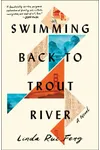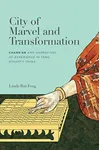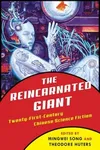Picture a Shanghai-born storyteller who weaves history, music, and the human heart into unforgettable tales—meet Linda Rui Feng! A professor by day and novelist by heart, Feng has captivated readers with her debut novel, Swimming Back to Trout River, a poignant exploration of family and immigration set against China’s Cultural Revolution. Her unique blend of scholarly insight and lyrical storytelling has made her a rising star in contemporary literature.
Born in Shanghai, Feng’s journey across continents and cultures shapes her evocative narratives. Now a professor of Chinese cultural history at the University of Toronto, she brings a historian’s precision and a poet’s soul to her work, crafting stories that bridge past and present with grace.
The Making of Linda Rui Feng
Linda Rui Feng’s path to literary acclaim began in Shanghai, where she was born, before she ventured to the United States, living in San Francisco and New York. A graduate of Harvard University with a BA in Earth and Planetary Sciences and Columbia University with an MA and PhD in East Asian Languages & Cultures, Feng’s academic journey took her deep into Chinese history. Her fascination with medieval and early modern China, from maps to aromatics, informs her scholarly work and infuses her fiction with rich, sensory detail. Her early prose and poetry, published in journals like The Fiddlehead and Kenyon Review, hinted at the novelist she would become.
Linda Rui Feng’s Unforgettable Stories
Feng’s debut novel, Swimming Back to Trout River (2021), is a lyrical masterpiece that traces a family’s journey across China and America during the aftermath of the Cultural Revolution. The story follows Junie, a ten-year-old girl in rural China, and her parents, Momo and Cassia, whose dreams and traumas unfold through music and migration. Critics praised its lean prose and emotional depth, earning it nominations for the Giller Prize, PEN/Hemingway Award, and Aspen Words Literary Prize.
Before her novel, Feng published City of Marvel and Transformation: Chang’an and Narratives of Experience in Tang Dynasty China (2015), an academic work exploring how the Tang Dynasty’s capital shaped Chinese cultural imagination. Her scholarly research, including projects on spatial knowledge and the history of scent, showcases her ability to make the past vivid and tangible. Feng’s fiction, marked by its tender exploration of human connections and historical echoes, resonates with readers who crave stories that feel both intimate and expansive.
Currently, Feng is working on a second novel, a multigenerational tale about an immigrant nanny, which promises to further her reputation for crafting emotionally resonant narratives. Her prose, often described as a symphony, blends the precision of a historian with the empathy of a storyteller, making her work a bridge between cultures and eras.
Why Linda Rui Feng Matters
Linda Rui Feng’s impact lies in her ability to illuminate the immigrant experience and the lingering echoes of history through deeply human stories. Her debut novel has been celebrated for its sensitive portrayal of love, loss, and resilience, offering readers a window into the emotional complexities of China’s Cultural Revolution and its diaspora. As a Chinese-Canadian author, Feng enriches contemporary literature with narratives that honor her heritage while speaking universally to themes of family and belonging.
Her academic work, meanwhile, pushes boundaries in understanding how space and senses shaped medieval China, influencing scholars and inspiring her fiction’s vivid settings. Feng’s dual role as historian and novelist makes her a unique voice, one that invites readers to explore the past with curiosity and heart.
- Born: Shanghai, China
- Key Works: Swimming Back to Trout River, City of Marvel and Transformation
- Awards: MacDowell Fellowships, Giller Prize longlist, PEN/Hemingway Award longlist
Ready to dive into a world where history sings and hearts soar? Snag Swimming Back to Trout River and discover Linda Rui Feng’s lyrical genius!


